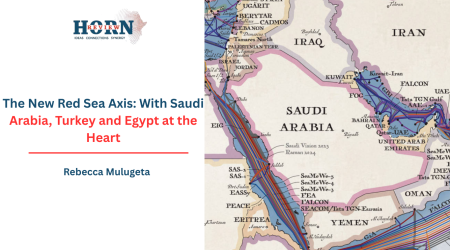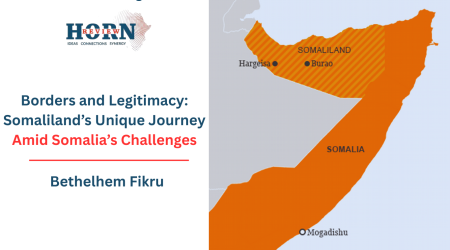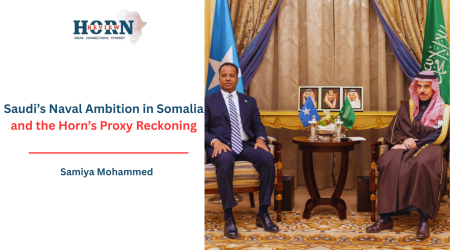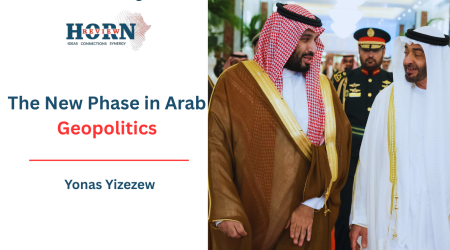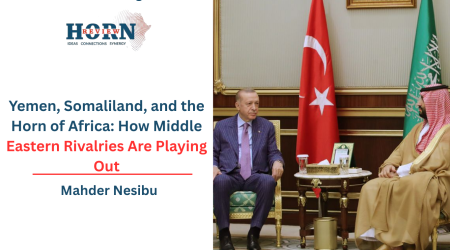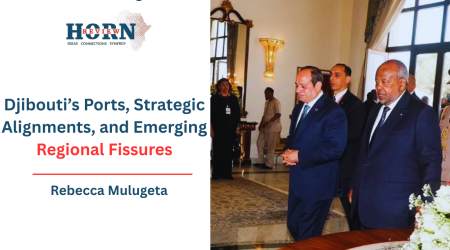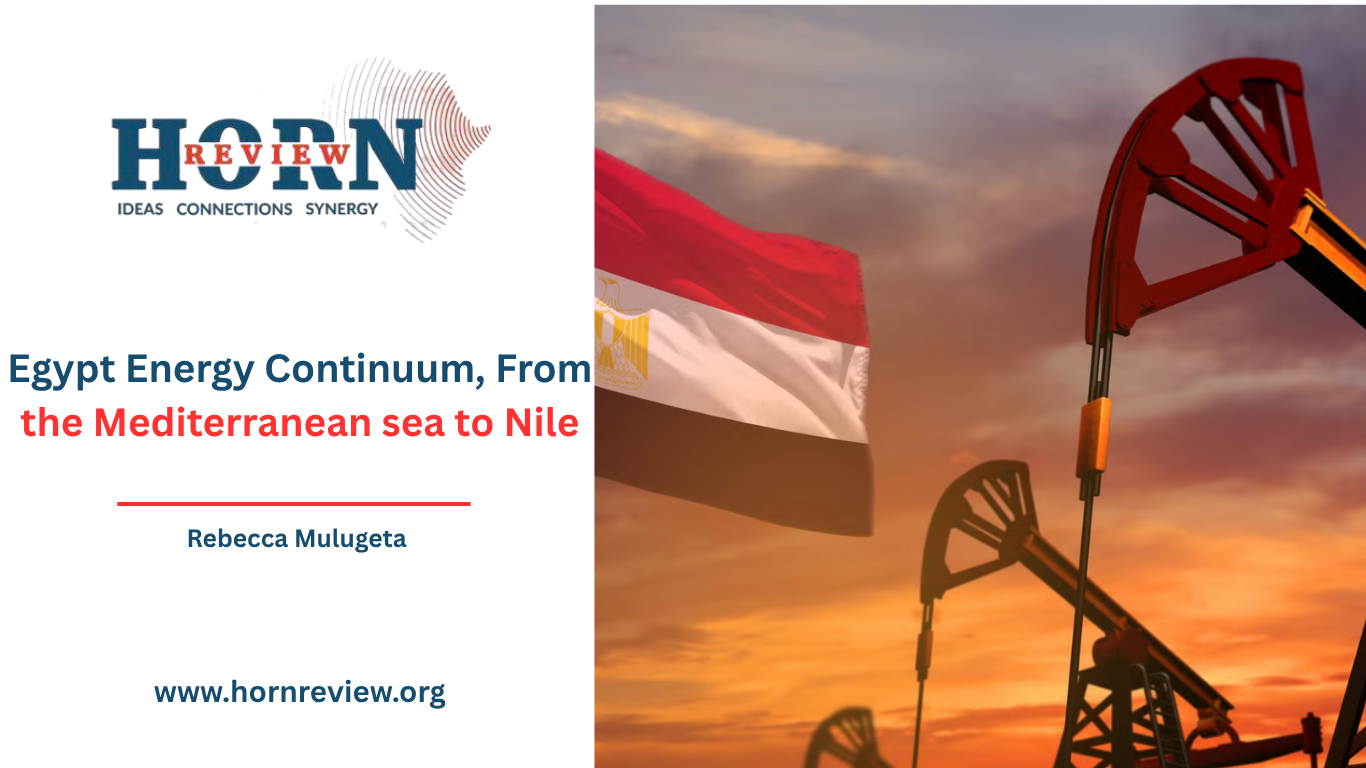
20
Nov
Egypt Energy Continuum, From the Mediterranean sea to Nile
For centuries, the Nile River has been the lifeblood of civilizations both for Ethiopia and Egypt, shaping the destinies of nations along its winding course. Egypt’s construction of the Aswan High Dam in the mid-20th century promised a leap into modernity offering flood control, enhanced agriculture, and hydroelectric power. Yet, this monumental feat has led to vast quantities of water evaporating from the reservoir’s surface, and the natural flow of nutrient-rich silt essential to the fertility of Egypt’s farmlands was drastically reduced. Today, Ethiopia’s Grand Ethiopian Renaissance Dam stands as a symbol and designed to harness the Nile’s waters with greater efficiency and sustainability, generating much-needed electricity for its people and neighboring countries. Despite these benefits, Egypt remains steadfastly opposed to the project, driven by a historic desire to monopolize the Nile’s waters, not only that also to dominate regional electricity production. This opposition reflects more than water security, revealing the underlying tensions between established power and emerging energy hub ambitions in this vital basin.
Egypt is currently positioning itself to be a major energy force in the Horn of Africa and across the Eastern Mediterranean. This ambition also now runs very closely aligned with Cairo’s wider geopolitical strategy of monopolizing energy markets, limiting regional competition, and controlling key water resources and maritime domains. Under President Abdel Fattah El-Sisi, Egypt strategically shifted its focus to comprehensive water infrastructure, energy diversification, and regional alliances that aim to secure its energy future and regional dominance.
Egypt’s role in the Eastern Mediterranean has grown significantly, especially in liquefied natural gas exports. The country has developed advanced LNG facilities, like the Idku and Damietta complexes, enabling it to liquefy and export gas not only from its fields but also from neighboring countries like Cyprus. In 2025, Egypt further cemented its Mediterranean position through landmark deals, including the development of the Cronos gas field in Cyprus’s Block 6 and partnerships with UAE-based companies that are investing in offshore gas exploration near Egypt. These reflect a thought-out strategy to link various regional gas reserves and export capability, thereby containing Turkey’s ambitions in Mediterranean gas exploration and export markets. Tapping its geographic location, infrastructure, and diplomatic alliances, Egypt seeks to be the key energy exporter in the region’s north, projecting power and influence across the Eastern Mediterranean energy landscape.
Domestically, Egypt has pursued an aggressive agenda since El-Sisi’s rise to power, constructing approximately 30 major water projects-27 of which are already operational-along with big dams to achieve water security and increase hydroelectric power generation. These water infrastructure projects are vital not only in managing Egypt’s meager water resources but also in adding to electricity production so as to meet both growing domestic and regional demand. The intention of Egypt to dominate the north in terms of hydrocarbon export and to become a major electricity supplier to the south reflects its dual strategy in maintaining monopoly control over the energy market in neighboring African countries. This approach protects Egypt’s economic interests by preventing emerging competitors, such as Ethiopia, from developing significant renewable or hydroelectric resources.
This energy dominance strategy directly fuels Egypt’s opposition to Ethiopia’s Grand Ethiopian Renaissance Dam, situated on the Blue Nile. Egypt claims that GERD threatens its water security-a narrative as much about controlling regional energy market competition as it is about water resources. The ability of Ethiopia to produce hydroelectric power at scale threatens to undercut Egypt’s electricity exports by selling cheaper, renewable hydro power to countries in East Africa and potentially beyond, breaking Egypt’s regional energy monopoly. Besides, Ethiopia’s plans to expand energy exports to neighboring countries and potentially across the Red Sea further challenge Cairo’s established control over regional maritime routes and energy corridors, heightening Cairo’s security and economic concerns.
To date, Egypt has actively constructed and utilized various alliances around the region as a means of checking Ethiopia’s hydroelectric and maritime ambitions. These include blocking Ethiopian efforts to secure formal roles in Red Sea governance and obtaining regional partners who share its concerns vis-à-vis Ethiopian expansionism. Egypt regards an increasingly influential role for Ethiopia in the Horn of Africa’s maritime and energy sectors as thwarting key Egyptian strategic interests. Consequently, under the broader goal of preserving unchallenged energy dominance at both the water and electricity markets, Cairo has been following a consistent policy of containment toward Ethiopia through denying its dam projects and barring access to critical maritime corridors.
Meanwhile, Egypt is investing significantly in updating and expanding its oil and gas industry, including $6 billion of recent commitments to exploit Mediterranean hydrocarbon resources and develop associated downstream industries such as refining and petrochemicals. Initiatives in clustering underdeveloped fields and establishing a regionally cooperative approach through multilateral platforms, such as the East Mediterranean Gas Forum, also express Egypt’s goal of institutionalizing its energy hub status through resource development, regional partnerships, and infrastructure integration. These culminate in an all-rounded energy approach toward diversification of its energy mix, incorporating renewables and balancing supply between traditional hydrocarbons and cleaner energy futures.
However, in pursuing its ambitions to dominate energy markets and the no less complex geopolitics of regional water and energy resources, there is an important principle at play: overcoming regional challenges requires an inclusive approach that allows all countries to use their natural resources for development. While Egypt’s ambitions are rooted in strategic interests and concerns about national security, they should not come at the expense of Ethiopia or any other country’s right to develop its natural endowments in a sustainable manner. The global energy landscape increasingly requires cooperation and fair competition rather than containment and exclusion. Allowing all countries to develop and export their energy resources creates regional stability, economic growth, and energy security for all involved. Thus, in pursuing its energy hub ambitions, Egypt’s adoption of collaborative frameworks and fair mechanisms of resource sharing would serve to enhance its legitimacy and long-term success in the region.
Egypt’s ambition to become a regional and global energy hunter is not simply an economic project but a geopolitical one designed to exclude competitors, above all Ethiopia. Heavy investments in LNG and oil infrastructure, water management, and security alliances are aimed at maintaining regional dominance over energy resources and their transit routes. Its opposition to Ethiopian dam projects reflects a larger containment strategy rooted in the preservation of an energy monopoly extending from the Mediterranean down to the Horn of Africa and the Red Sea. Egypt’s dream of becoming an energy superpower is entwined with its reflexive response to budding regional competitors, reflecting a complex interplay between energy ambition, geopolitical rivalry, and resource control. The sustainable road requires Egypt and its neighbors to acknowledge mutual interests through allowing each the right use of natural resources, fostering a much more cooperative and prosperous regional energy future.
It is not possible to comprehend Egypt’s growing regional energy hub status in isolation from its diplomatic and security maneuvers against Ethiopia. They constitute one element within a wide-ranging strategy to secure Egypt’s historic energy dominance, foil the competition presented by Ethiopian hydroelectric generation, and retain control over vital regional maritime infrastructures pivotal for energy trade and security, while underscoring the need for inclusive and equitable resource use across the region.
By Rebecca Mulugeta, Researcher, Horn Review

